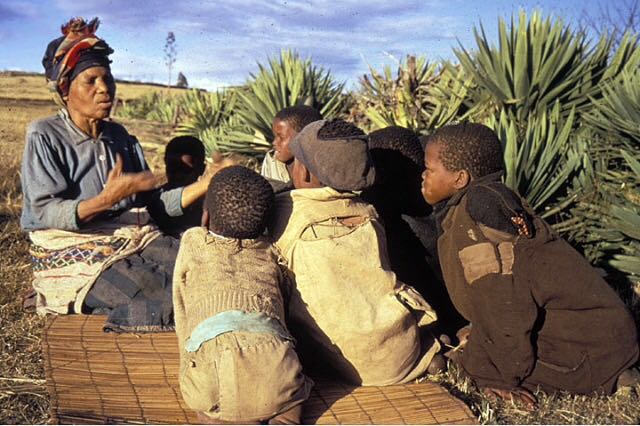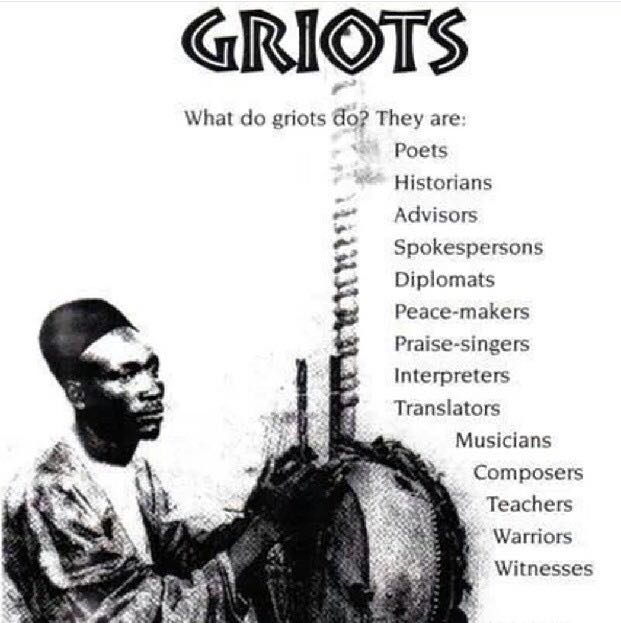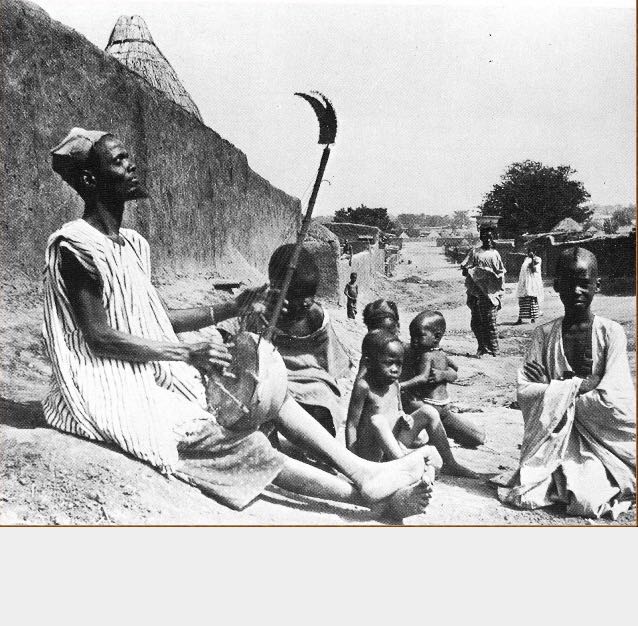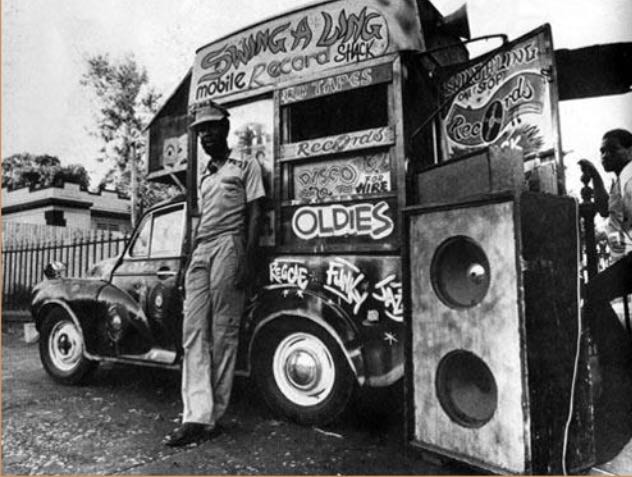Griots are; poets, historians, advisors, spokespersons, genealogists, diplomats, peace-makers, praise-singers, interpreters, musicians, composers, teachers, warriors and witnesses.
What is the griot tradition?
Throughout pre-colonisation where oral tradition took precedence over the written word, griots were part of a fundamental foundation of African societies. Griots were chroniclers of history- passing down tribal history to the next generation, griots connected their communities to the past and let no story go untold. Griots are also orators, lyricists and musicians and they train to excel in all three art forms.
Griots or jalis act as councillors for their people, often given spiritual guidance, knowledge and advice using music and poetry.
Traditionally, in order to become a griot you had to be born into a griot family. Griots were so fundamental to African society that they were a social class on their own. The griot tradition is a hereditary art form and griots could be men or women.
Griots are also travellers, it is essential that they have a strong knowledge of their region in order to pass on information to the next generation of inhabitants.
Where did it originate from?
Although oral tradition is present throughout the whole of African society, it is believed that the griot tradition came out of the Mali Empire and more specifically the Mandinka peoples which encompassed the majority of modern day West Africa (Mali, Gambia, Guinea, Ivory Coast, Burkina Faso, Guinea-Bisseau, Mauritania, Senegal, Sierra Leone and Liberia).
Why is it important?
The griot tradition is pivotal to empowering African communities and the African Diaspora. We live in a white supremacist world where the narratives of African people are heavily misconstrued and narrowly represented. From the education system to the media, there is a racist consensus that Africa is a very savage, dependent, homogenous place with no history unless it is linked with the Trans-Atlantic Slave Trade or the Ancient Egyptians and their pyramids. The griot provides an antithesis to this narrative, through the griot we can learn the vibrant history of Africa, and not just as if it is one big country but all the 3000 distinct ethnic groups in Africa. The griot teaches us many moral lessons without using Abrahamic religions and thus presents with alternative schools of thought. The griot teaches us all about the various inventions, art, music a nd historical figures of African peoples, thus inspiring and empowering younger Africans too.
nd historical figures of African peoples, thus inspiring and empowering younger Africans too.
Griots provide a radical alternative to the Eurocentric education system. When students do learn about African history it is often centred around whiteness. For instance, slavery and the Civil Rights Movement are commonly taught because white people are involved in these events. However, these particular historical events when taught alone can further perpetuate stereotypes of Africans as dependent on Europeans and also conveys that African history only holds relevance when white people are involved.
The foundation of hip hop
The roots of rap can be traced back to post-colonial West Africa and the griot tradition. It can be argued that Africans have been rapping long before we were stolen and taken to America. In fact Afrika Bambaataa calls the rapper a ‘postmodern griot’.
The Last Poets are probably the best example of the griot tradition being introduced in its purest form to Western audiences. However there are multitude of popular continental African griots such as: Bakari Sumano, Sekooba Diabate, Mamadou Cissé and Dembo Jobarteh.
Rap came from the African continent via Jamaica via the Bronx. The griot tradition heavily influenced Jamaica toasting (chanting/talking over riddims) which came to prominence in the 1950’s. This was transported to New York in the 1970’s and 80’s by Caribbean immigrants such as DJ Kool Herc and popularised by block parties powered by sound systems. From here many African Americans began to put their own spin on these musical traditions, and thus hip hop was born.
“The role of the griot and the role of the rapper are completely different, we are nothing alike. Ancient griots served kings and modern griots praise rich people and serve politicians. We are the opposite—we serve the people against the politicians, we are the voice of the voiceless.”-Thiat of Keur Gui
However it can be argued that the griot tradition is largely romanticised, in fact the modern rapper is antithetic to the values of the griot. Griots were often royal advisors and to some extents were a bourgeois buffer class between the nobility and the common people. Of course, these societal roles are antithetic to the hip hop movement which started as a grassroots working class socio-political movement that verbally challenge the state and oppressive structures.
The links are undeniable, regardless of the classist element of the griot tradition, we can say that the griots social role has evolved into that of an activist. Of course, not all rap is revolutionary and all rap does not need to be revolutionary. Nevertheless one element has remained unchanged from the Mali Empire in the 7th century to the Bronx in the 1980’s- rap is all about being true to yourself and telling YOUR story or your community’s stories. From the positive and uplifting to the criminal and negative, they all need to be told so they can be passed down and so no story is left untold.
‘Unless the lion learns to write their own story, the hunter will always be the hero’.
Maya Elese
Latest posts by Maya Elese (see all)
- REVIEW | REFLECTIONS ON CROSS THE TRACKS 2025 — June 16, 2025
- REVIEW | CROSS THE TRACKS 2024 IN LONDON’S BROCKWELL PARK — May 28, 2024
- INTERVIEW | ROC NATION SIGNED RAPPER & PRODUCER KAY YOUNG DISCUSSES HER NEW EP ‘MIDDLE MATTERS’ — September 3, 2020



